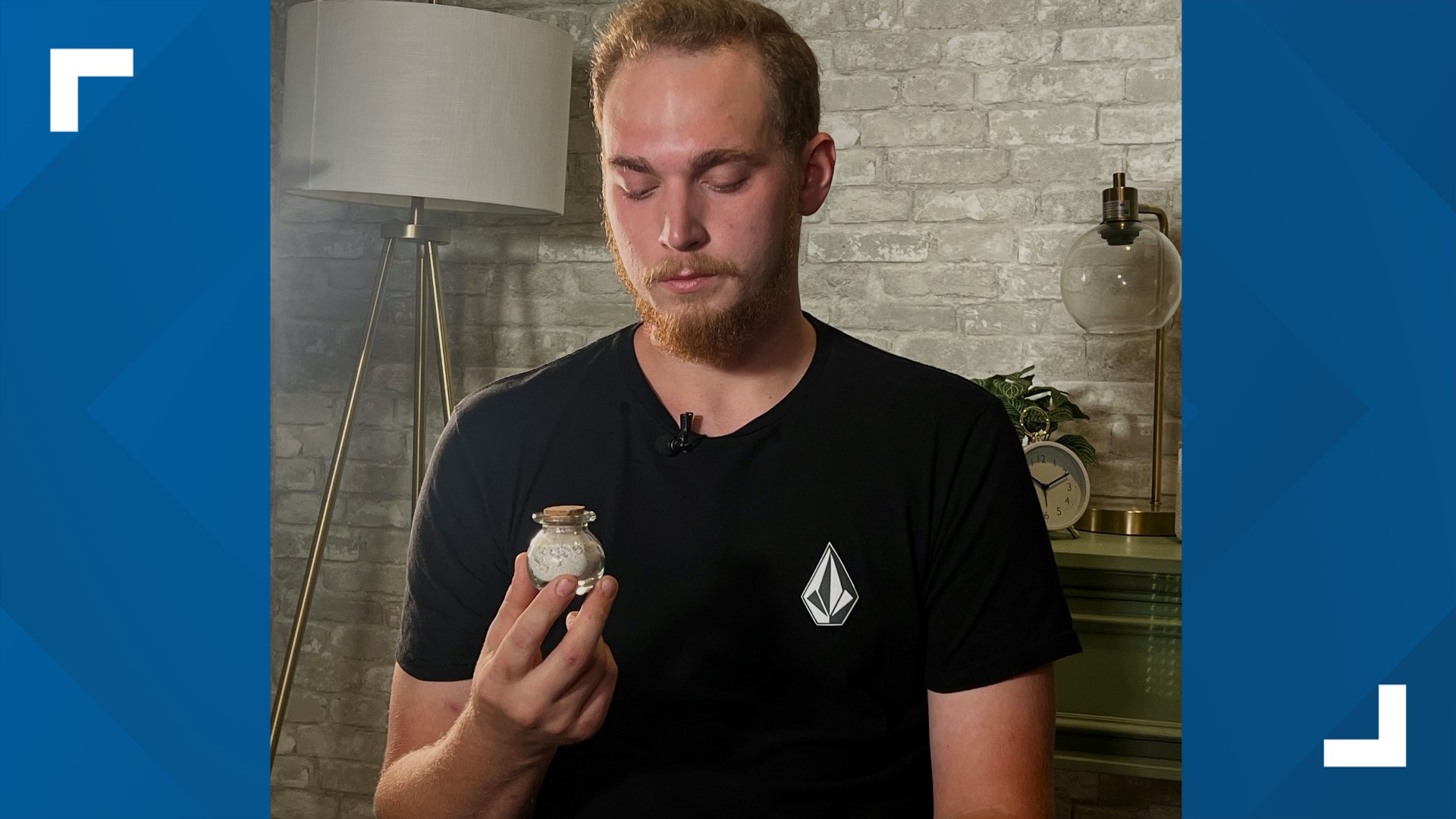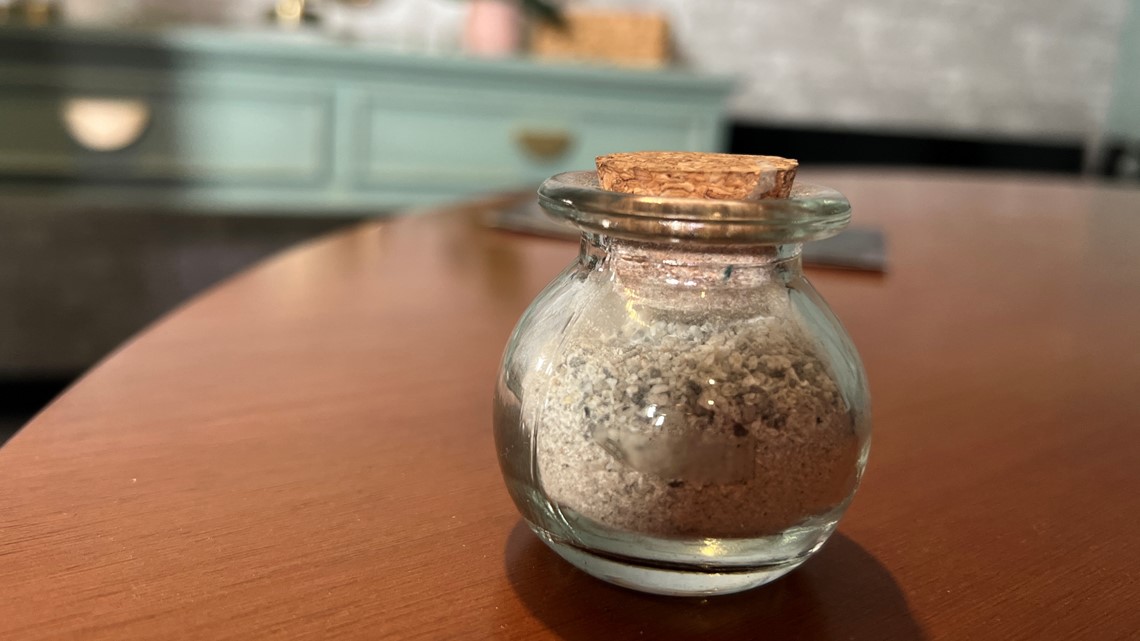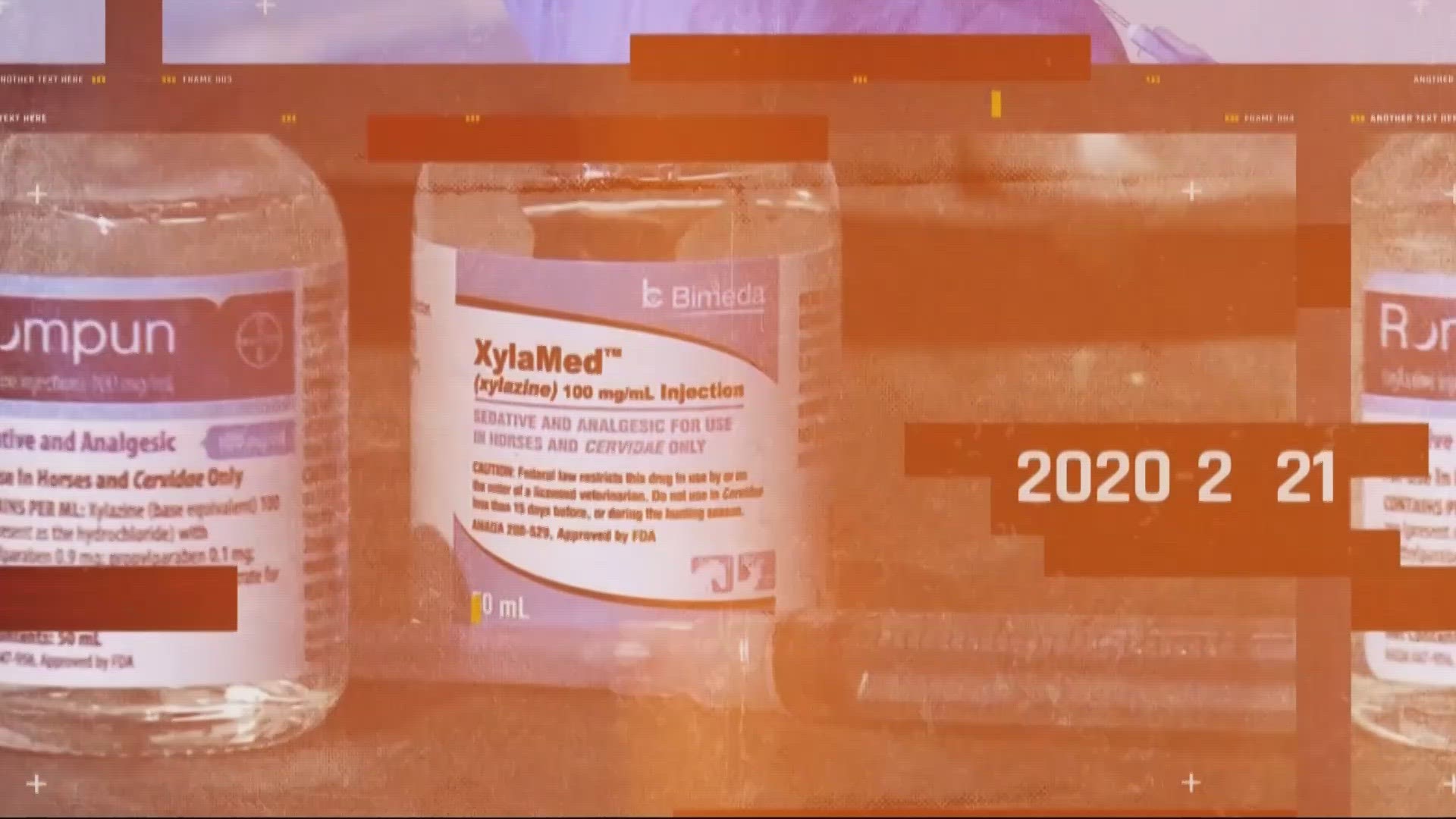Double dose of danger: Xylazine linked to hundreds of deaths on the First Coast
On the street, it’s known as “Tranq", "Philly Dope" and "Zombie Drug.” In the lab it’s xylazine. It's now frequently found in Florida drug seizures with fentanyl.

On the street, it’s known as “Tranq", "Philly Dope" and "Zombie Drug.” In the lab it’s xylazine. Whatever you call it, it’s now the sixth-most frequently present drug found in Florida drug seizures according to The Florida Department of Law Enforcement.
Designed as an animal tranquilizer, and not approved for human consumption, it’s increasingly found mixed into street drugs, which can cause lethal results.
It's so dangerous that just a few weeks ago, the White House made a historic move and designated fentanyl combined with xylazine an emerging threat to the United States.
Xylazine is illegal to possess or sell in Florida but isnt a federally controlled substance.
A deadly drug cocktail
“This was my dad before addiction, when he was happily married to my mom,” Tyler Johnson said, pointing to a picture of his father, Scott Johnson.
The 24-year-old only has a few pictures of his dad. He wishes he had more.
“I didn't take any pictures of my dad. I didn't know he was gonna leave. If I would have known he was gonna go so soon, I would have taken all the pictures. Every time I seen him, I would have taken a picture,” Johnson said.
Last September, Tyler Johnson was at work when he learned his father had died of an overdose in Jacksonville. His dad was 48. He now carries a small bottle with him containing his father’s ashes.


“I'd much rather he be here than be in this jar for sure,” Johnson said, “And I blame drugs because if they didn't exist, he would still be here.”
It wasn’t until we showed Johnson the Medical Examiner’s report that he learned about the deadly drug cocktail that killed his dad.
“I didn't know anything about xylazine,” Johnson said. “I didn't even know it existed until you told me.”
Johnson’s death was ruled accidental due to toxic levels of fentanyl and xylazine.
“It makes me pretty mad. As if fentanyl wasn't bad enough, now there's another one out there that's killing people,” Johnson said.
Since 2019, more than 140 people have died from xylazine in combination with fentanyl and often other drugs too in Duval, Nassau and Clay County. This according to records that First Coast News obtained from the Medical Examiner’s Office in Jacksonville.
In total, xylazine showed up in the toxicology reports of about 315 people. The youngest was a stillborn baby, and the oldest was a 69-year-old man.
“You have fentanyl which can quickly knock the breathing out and actually xylazine which is the sedative also affects your breathing," Addiction Psychiatrist Dr. Lantie Jorandby said. “The two together, it's kind of like a perfect storm.”
Narcan doesn't reverse the effects
While Narcan can often revive patients who overdose on heroin or fentanyl, Dr. Jorandby, Chief Medical Officer at Lakeview Health, says it doesn’t work on xylazine because it is a sedative, not an opioid.
“What I think the drug dealers are doing is they're putting xylazine into the supply to make people addicted faster, to give them a better high, so they come back so they have return customers,” Jorandby said.
It can lead to amputations
The corrosive effects go beyond addiction and the risk of death. “Tranq” injections can create deep festering wounds.
“That’s one of the hallmarks of xylazine. If you are using xylazine and you're injecting it, a lot of people develop burns and or what look like burns and infections in their skin,” Jorandby said. “Sometimes they need amputations. It's that bad.”
From 2020 to 2021, the DEA reported the largest increase in xylazine-positive overdose deaths was in the South, the number surged 1127%.
In March, the DEA issued a public safety alert about xylazine, saying it was in about 23% of fentanyl powder and 7% of fentanyl pills seized by the agency in 2022.
“Fentanyl is dangerous. Now we have doubled the amount of the threat here by adding xylazine to it,” Agnes Winokur, Laboratory Director for the DEA’s Southeast Laboratory said. "They may not even be aware that they have this non-opioid that has this long-lasting effect that will just not respond to Narcan in this mixture that they're taking. That increases that probability that this could be their last dose."
A growing death toll
Assistant Chief Edwin Cayenne with the Jacksonville Sheriff's Office Narcotics and Vice Section says they are seeing an uptick in xylazine locally. He says it's used as a cheap cutting agent that can stretch the drug being actually being sold.
“What we're starting to do here with the Jacksonville Sheriff's Office, is we're beginning to track those numbers. And at the completion of 2023, we'll be able to give an accurate number as to how many xylazine or how much xylazine has played an effect in these deaths,” Cayenne said.
While some users are intentionally seeking it, many are unaware of what they’re getting.
“If Narcan cannot override it, what you're going to have is an increase in the number of deaths we are seeing,” Cayenne said.
Those numbers now include Tyler Johnson’s dad.
“I know the pain that it caused me, and I don't want that pain or anybody else to feel that pain if I can help it,” Johnson said. “If I can help raise awareness or change somebody's mind that is selling the stuff, that’s what I want to do.”
In response to the White House designating xylazine as an emerging threat, a national response plan that will include testing, treatment protocols and strategies to reduce the supply is expected to be released in July.
"The danger just keeps increasing. It's just unbelievable, you know, we get the information out there, and then boom, there's a new substance out there and threat. And the danger just increases. It's not decreasing," Winokur said. "We just need to keep saying it over and over and over, you do not know what you're taking. That's the bottom line."
If you or your loved one is battling addiction, help is available. You can call the Substance Abuse and Mental Health Services Administration at 1-800-662-HELP (4357) or visit the SAMHSA website.
If you have a drug poisoning emergency you can Florida Poison Control Centers Helpline at 1-800-222-1222. If the person is not breathing, unconscious or having a seizure call 911.


